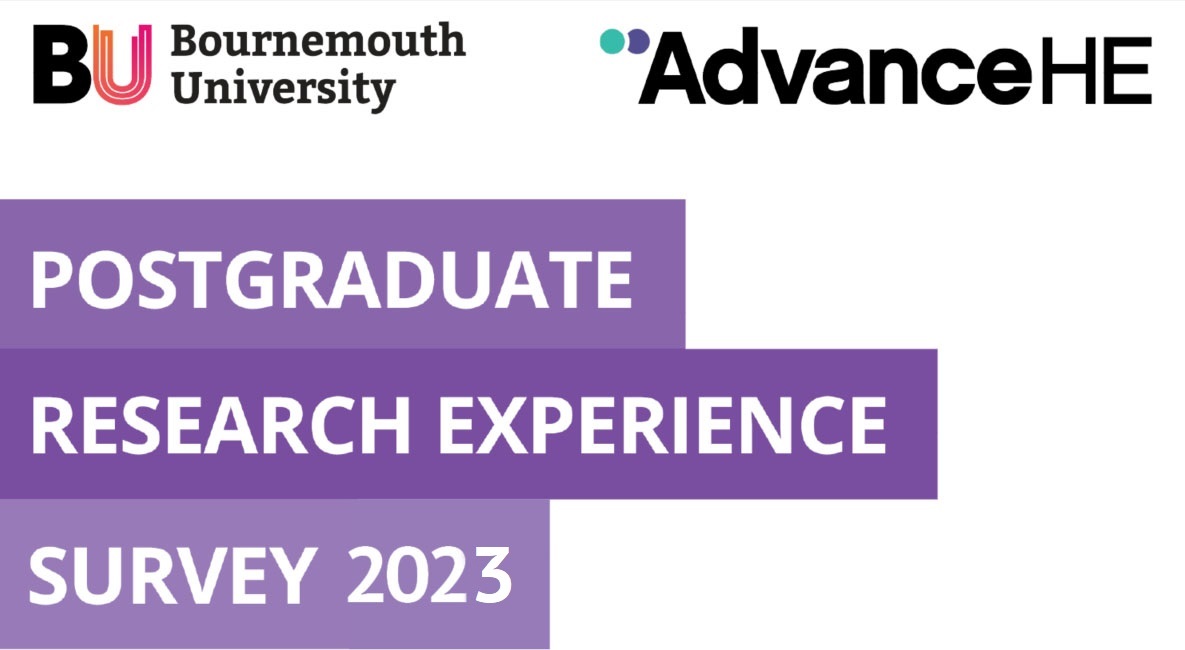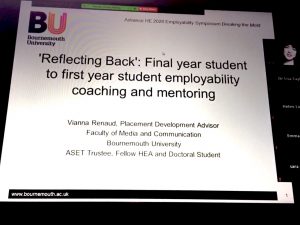The Advance HE Postgraduate Research Experience Survey (PRES) has just closed and 40% of our PGRs provided feedback on their experiences at Bournemouth University.
This year, we are running a parallel survey for supervisors which asks a similar range of questions to PRES to also give supervisors a voice, and to provide balance and/or support to the issues raised by the PGRs.
The survey covers topics including PGR supervision; resources/research culture; progress/assessment; responsibilities; support for PGRs; research skills/personal development; and opportunities/overall experience.
Your experiences will be combined with those of other PGR supervisors to help us to understand the overall picture more clearly from the supervisors’ perspective, and the combined views of PGR supervisors will be considered alongside the views of the PGRs being reported in the PRES. The responses will be analysed and reported as appropriate.
Participation is optional but we would very much appreciate your feedback to help us further review and improve the support available for our PGRs.
To complete the survey, which closes at 5pm on Wednesday 31 May 2023, please click on the following link: https://bournemouth.onlinesurveys.ac.uk/pres-sup-2023.
Your involvement will be to complete this short anonymous online. The online survey will take approximately 6 minutes to complete.
If you have any questions, please contact Doctoral College.



















 Beyond Academia: Exploring Career Options for Early Career Researchers – Online Workshop
Beyond Academia: Exploring Career Options for Early Career Researchers – Online Workshop UKCGE Recognised Research Supervision Programme: Deadline Approaching
UKCGE Recognised Research Supervision Programme: Deadline Approaching SPROUT: From Sustainable Research to Sustainable Research Lives
SPROUT: From Sustainable Research to Sustainable Research Lives BRIAN upgrade and new look
BRIAN upgrade and new look Seeing the fruits of your labour in Bangladesh
Seeing the fruits of your labour in Bangladesh ECR Funding Open Call: Research Culture & Community Grant – Apply now
ECR Funding Open Call: Research Culture & Community Grant – Apply now ECR Funding Open Call: Research Culture & Community Grant – Application Deadline Friday 12 December
ECR Funding Open Call: Research Culture & Community Grant – Application Deadline Friday 12 December MSCA Postdoctoral Fellowships 2025 Call
MSCA Postdoctoral Fellowships 2025 Call ERC Advanced Grant 2025 Webinar
ERC Advanced Grant 2025 Webinar Update on UKRO services
Update on UKRO services European research project exploring use of ‘virtual twins’ to better manage metabolic associated fatty liver disease
European research project exploring use of ‘virtual twins’ to better manage metabolic associated fatty liver disease